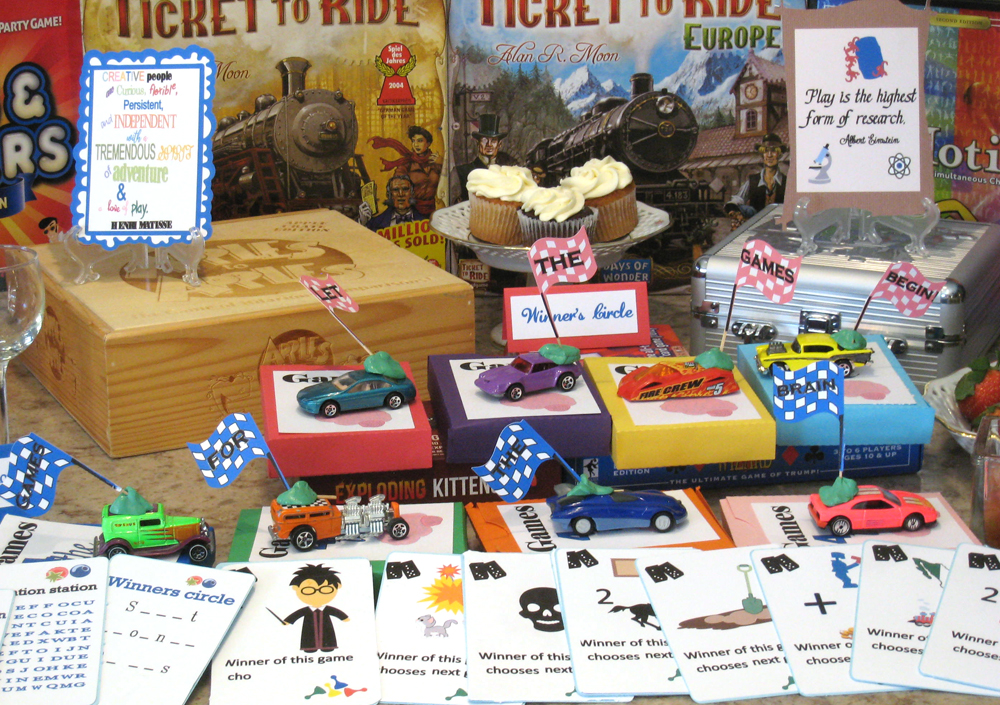


Other factors that make it tricky to assess the worth of brain-building computer programs are the potential effect of programs that become more challenging as the player becomes more successful the effect of competitive features in a program and the player’s desire to get his or her money’s worth from buying the software, some of which costs nearly $400. There are no studies comparing one commercially available program to another or to mind-stimulating hobbies. But self-reported improvement in everyday situations was fairly similar: 48% for the Brain Fitness group versus 40% for the controls.
#Games for the brain software#
The software users boosted their memory and attention scores more than the control group. The other half-the control group-watched educational DVDs and were quizzed on the material. Half were then assigned to complete the program’s 40 hour-long sessions. But they showed no improvement (compared with the control group) when they repeated several general memory and thinking skills testing that had been done at the start.Īn earlier study, sponsored by Posit Science, the company that created the popular Brain Fitness Program, used standard memory tests to assess 487 people over age 65. After six weeks, people in the first and second groups boosted their scores on their assigned brain-training exercises. The third (the control) involved searching online for answers to obscure questions. Another focused on broader tasks of memory, attention, mathematics, and other skills. One focused on reasoning, planning, and problem solving.

Can they do the same for your brain? Although that’s the promise behind commercially available computerized brain-training programs, most experts say “Not so fast.” As described in Improving Memory: Understanding age-related memory loss, a new Special Health Report from Harvard Medical School, people who play these games might get better at the tasks they practice while playing, but the games don’t seem to improve users’ overall brain skills, such as attention, memory, use of language, and ability to navigate.Ī 2010 study published in the journal Nature included 11,430 men and women between the ages of 18 and 60 who were randomly assigned to one of three online brain exercise programs. The list of questions with suggested answers make Race to the Brain Game a good way to learn about hearing loss, hearing device use, and self-advocacy for teacher training programs, educational professionals, and family members.Computer games are being touted as a way to keep the body fit. Instruction sheet with extensive sample learning objectivesĪll items are included in a heavy-duty plastic envelope for easy transport for busy itinerant teachers or storage in resource rooms or homes.List of questions with suggested answers.Each question card is written at 3 learning levels.Over 100 game cards, organized into topical information.Two heavy laminated blank audiograms and an erasable marker for students to draw in their own audiograms.Two heavy lamintated game boards – 1 with and 1 without cochlear implant.The game also provides a means to discuss hearing devices, challenging listening situations and use of self-advocacy skills. Self-Concept: How the Child with Hearing Loss Sees HimselfĪ fun and organized way to teach students about their own hearing loss and its impact.Self-Advocacy Skills for Students with Hearing Loss.Listening (Auditory Skills) Development.Legal Issues in Serving Children with Hearing Loss.Hearing Loss – Identification, Impact and Next Steps.Early Childhood: Infants, Toddlers, Preschool.Assessment of Student Skills, Challenges, Needs.He Failed Hearing Screening What’s Next.Opportunities with the Supporting Success Team.


 0 kommentar(er)
0 kommentar(er)
